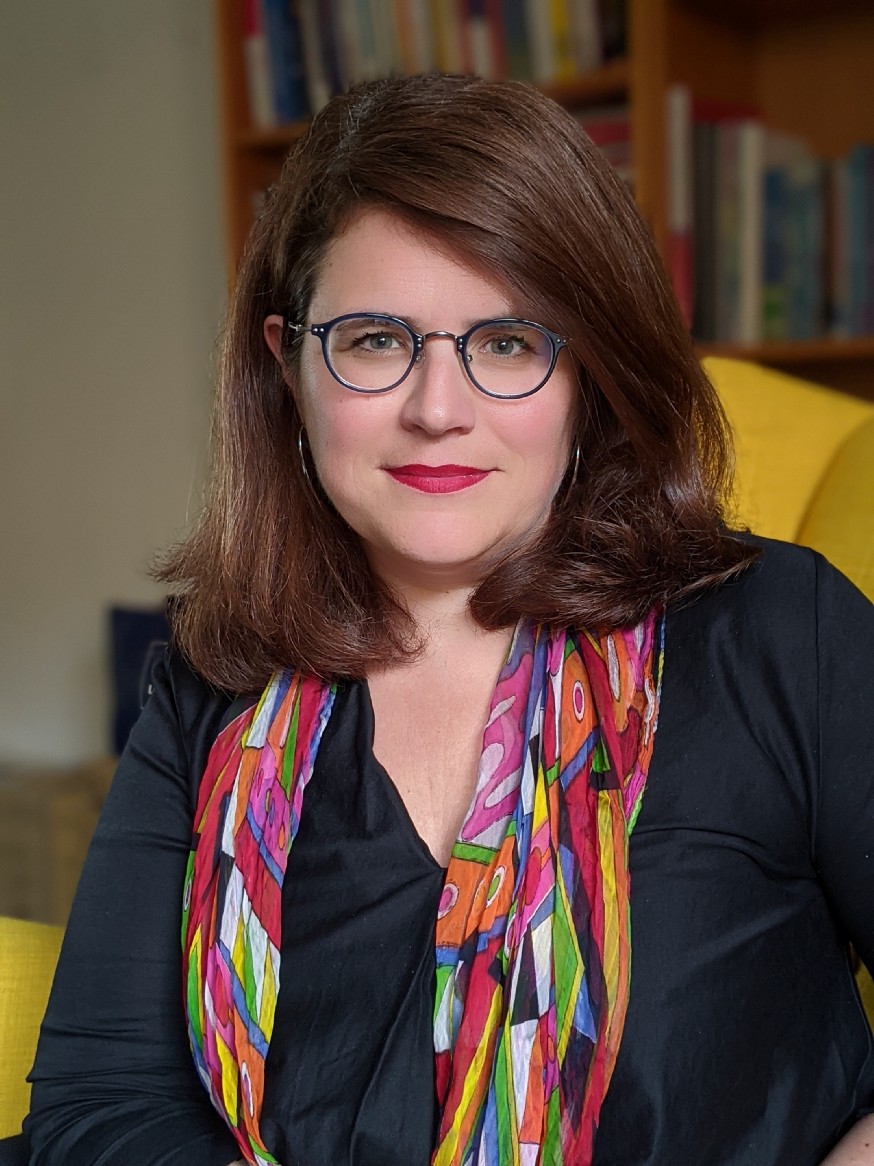Keeping LGBTI people safe as the war in Ukraine continues

To mark IDAHOBIT on May 17, ILGA-Europe and UNAIDS, the Joint United Nations Programme on HIV/AIDS, will host an event focusing on the rights of LGBTIQ+ people in and from Ukraine. Here, our Executive Director, Evelyne Paradis speaks to UNAIDS about the particular challenges facing LGBTIQ+ people caught up in war.
Hi Evelyne, how do humanitarian crises particularly affect LGBTI people?
Humanitarian crises affect everybody, however, some communities sometimes need a targeted response because of pre-existing vulnerabilities. These particular vulnerabilities make people feel unsafe when dealing with humanitarian organisations providing safe shelter, basic necessities food and medical aid. Not knowing if they will be treated without discrimination, simply welcomed and be taken care of, is a barrier for people in accessing humanitarian support.
ILGA-Europe is heavily involved in the Ukraine crisis. What are the main challenges facing LGBTI people affected by the war?
In the Ukraine crisis, what we are seeing is that LGBTI people are not de facto integrated in first aid supply chains. Transition-related and intersex-specific medication, such as hormone replacement therapy, and to a certain extent medicines for people living with HIV, are not ensured in humanitarian packages at the moment. On top of this, a significant portion of the LGBTI community cannot meet their basic needs, due to pre-existing socioeconomic inequalities.
Trans women with a male gender marker on their documents can be obliged to join the army or cannot leave the country along with other women, which puts them in a potentially very harmful situation.
Having access to safe shelter is also an issue. In Ukraine, many LGBTI people don’t feel safe to be ‘out’ in regular shelter, while some who are displaced in the country are reporting facing discrimination when trying to rent an apartment. As a result many of the LGBTI groups have set up shelters to support their communities. Some of those who are staying and are visible have been physically attacked, as LGBTIphobia was already an issue in Ukraine before the war.
This is all happening while LGBTI people face the same struggles everyone else is facing; money, food, caring for loved ones, and so much more.
What are organizations like ILGA-Europe doing to help?
We are sending direct financial support to groups who are staying in Ukraine and are providing direct support to their communities, as well as to LGBTI groups in hosting countries. We’re also actively working to mobilise resources for all the LGBTI groups working in support of LGBTI people in Ukraine and abroad. We’re working with large humanitarian groups and organisations like UNAIDS and connecting them to the needs on the ground, while advocating with European institutions and governments to take action both in support of LGBTI communities in Ukraine and for LGBTI people who have left the country.
What can be done to better address the unique needs of LGBTIQ+ people in humanitarian crises?
What we are seeing is that an LGBTI perspective is really not integrated into humanitarian work and the development of protection measures, such as protection from gender-based violence or access to medicines. In many ways we have had to start from zero, including having to establish contacts with actors in the humanitarian sector.
While it is still early in this particular crisis to have specific recommendations, there will be no doubt be a lot of learning to be done from the work currently happening, so that we make sure that in future LGBTI perspectives and needs are integrated in the way humanitarian actors respond from the start.
Many civil society and community organizations are supporting LGBTI people affected by the war in Ukraine. What challenges do they face in carrying out this important work?
Most LGBTI organisations are not set up to be doing humanitarian work, and yet they are supporting basic needs in addition to the work they continue to do for their communities. But they cannot do it all. If they become the first point of support and assistance, there’s a lot of other work, like advocating for rights, that will not be done. This is true in Ukraine as well as in hosting countries.
Inequalities, stigma, discrimination and human rights violations against are continuing to prevent LGBTI people from being able to access the HIV and health services they need. How can we achieve positive political, legal and social change?
The work that has started with the humanitarian sector shows there’s a need, but it’s also an opportunity. If the humanitarian sector incorporates an LGBTI perspective and LGBTI people in their work from the start, this can mean a positive change for these communities, especially in times of crisis.
Register now for tomorrow’s event by ILGA-Europe and UNAIDS focusing on the rights of LGBTIQ+ people in and from Ukraine.
This interview was originally published on UNAIDS’ website.